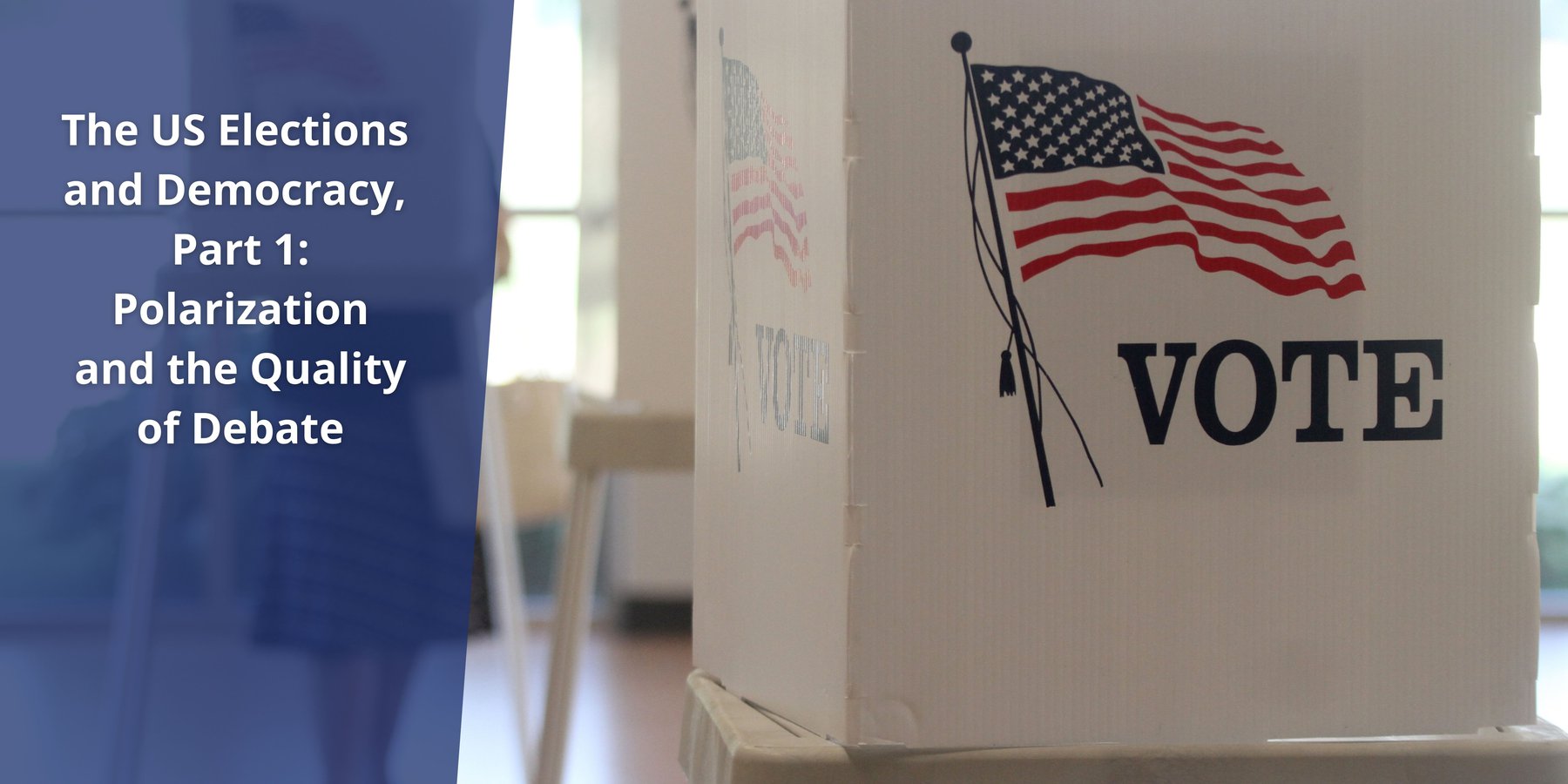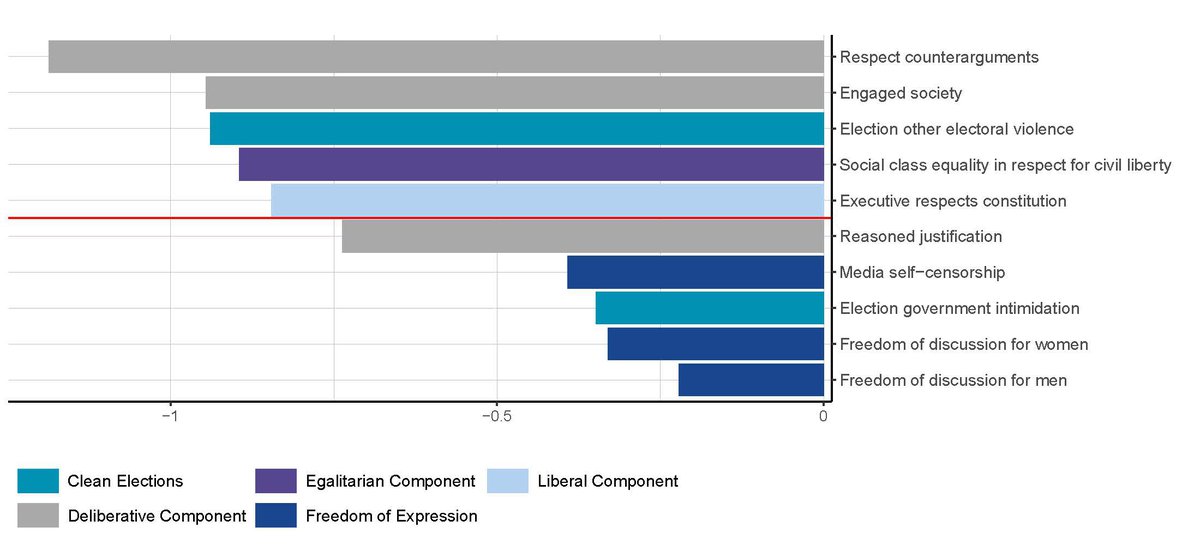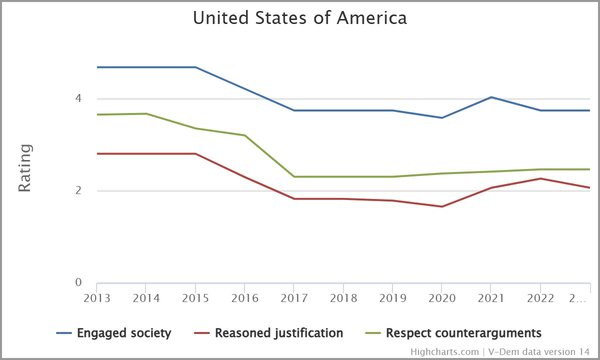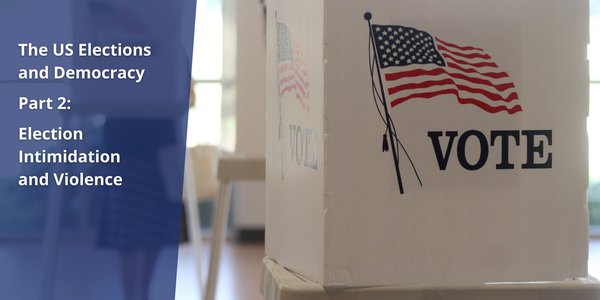The Presidential elections in the US on November 5 take place in an environment of “toxic” levels of polarization and increasing political violence. The outcome of the election is often framed by both sides as pivotal for the survival of the US democracy.
The Varieties of Democracy (V-Dem) data points to several components of the US democracy deteriorating over the past ten years. We dive a bit deeper into some of them in two articles, of which this is the first.
What got worse?
Figure 1 shows the ten V-Dem indicators that have declined the most in the US during the last decade, and which aspect of V-Dem’s democracy indices they are part of.
Fig. 1: Top 10 worsening indicators in the US, 2013-2023
This figure plots the top 10 indicators that declined the most in the US between 2013 and 2023. The red line marks the top 5 indicators. An indicator is declining statistically significantly if its 2023 value is lower than its 2013 value on a scale from 0 to 4 (for most indicators), and the confidence intervals do not overlap.
The three gray indicators belong to the Deliberative component index, which focuses on the process by which decisions are reached. In a deliberative process, public reasoning focused on the common good motivates political decisions—as contrasted with emotional appeals, solidary attachments, narrow interests, or coercion. There should be respectful dialogue at all levels.
The two indicators registering the greatest decline, measuring the quality of debate, both belong in this index.
Polarization and the Quality of Debate
A recent study finds that a vast majority of Americans perceives the political debate to have become less fact-based and more disrespectful.
Fig. 2: Quality of Debate in the US, 2013-2023
As shown in the graph, the deliberative quality of policy debates (measured in the indicators Reasoned justification and Respect counterarguments) deteriorated in connection with the 2016 election year and during the Trump administration, and has not recovered since.
Moreover, citizen’s participation in independent public debate on policy changes (measured by the Engaged society indicator) decreased during 2016-2020, possibly due to the toxic political climate.
Reducing Polarization Vital
The increasing ideological and emotional polarization among American politicians and voters makes a return to a respectful, argument-based culture of policy debate challenging. Therefore, the Vice Presidential Debate in October surprised with an in-depth discussion of policy alternatives and an unusually civil, cordial tone in contrast to previous Presidential Debates.
Exchanging opposing viewpoints is vital to reduce polarization and build trust across partisan lines. Hence, political dialogue that respects the political opposition, and values ideological pluralism and counterarguments forms the backbone of the democratic process.
Research shows that political polarization harms democracy once it reaches “toxic” levels. Such polarization and autocratization are mutually reinforcing. Given the increasing ideological and emotional polarization among American politicians and voters, restoring a respectful, argument-based culture of policy debate remains a challenge for a divided nation.
Also see this Graph of the Week: Declining Quality of Debate.





